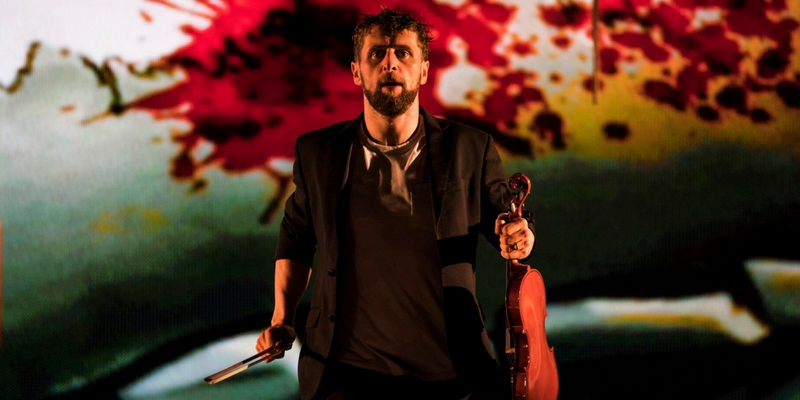
It is disappointing that the Dublin Theatre Festival marked its sixtieth anniversary with one of its most unexciting programmes in recent memory. That’s not to say that there was a dip in the overall quality of the production, but the festival certainly lacked in surprising innovation or an unexpected breakaway hit.
My feelings towards this year’s programme were coloured negatively by its flagship productions. The Gaiety hosted The Suppliant Women, Woyzeck in Winter and King of the Castle, all of which arrived trailing widespread acclaim and significant hype. Woyzeck in Winter, in particular, received almost universal hosannas from critics. Despite the promising premise of pairing Georg Buchner’s unfinished final play with Franz Schubert’s Winterreise – the piece was, undeniably, the ultimate snob ticket of the season – the production proved to be deeply conservative, feeling occasionally like a less emotionally engaging Les Misérables.
A reluctance to tackle the text’s more overtly misogynist aspects is a criticism that could similarly be levelled at Druid’s production of Eugene O’Brien’s King of the Castle. A “lost classic” of Irish theatre, it tells the story of a woman who is essentially loaned out by her infertile husband to their neighbour so that she may produce an heir for him. While there may be value to the text beyond its gender politics, one wonders why Garry Hynes, in the face of mounting agitation for a revaluation of the role of women in theatre, insists on plumbing the depths of Irish theatre’s predominantly male back catalogue.
The Suppliant Women, produced by Actors Touring Company and Royal Lyceum Theatre Edinburgh, should have provided a welcome antidote to this. However, despite the game efforts of its production team, who moulded a group of 30 volunteers into a highly impressive ensemble, Aeschylus’s text was not nearly as empowering for women as they might have hoped, nor is it as wholly supportive of refugees as I suspect they wished it to be. The Abbey disappointed somewhat with a crowd-pleasing revival of Ulysses that failed to be crowd pleasing, but sold out anyway. However, it was heartening to see Stacey Gregg, one of Ireland’s most interesting new playwrights, returning to the Peacock with a timely update of Franz Kafka’s The Trial.
The Gate’s offering was interesting in terms of content. Tribes concerns itself with the deaf son of a middle-class family, whose part is played by a deaf actor. Although, unfortunately, Tribes couches its exploration of language and tribalism in the more familiar arena of family drama. Meanwhile at the Pavilion, Sebastian Barry offered a wonderful display of craftsmanship, but little originality, in a two-person monologue play, On Blueberry Hill.
The only truly exceptional offering of the festival, and perhaps one of the most exciting productions of the year so far, was Enda Walsh and Donnacha Dennehy’s thrilling new opera, The Second Violinist. An intensely theatrical piece, it merged music, image, dialogue and design in a heart-racing production, leaving the other flagship productions playing second violin.






